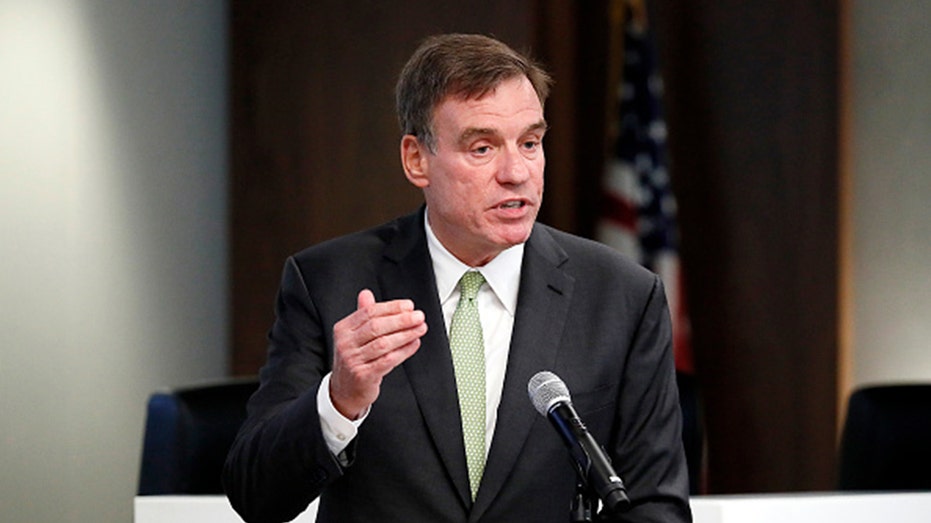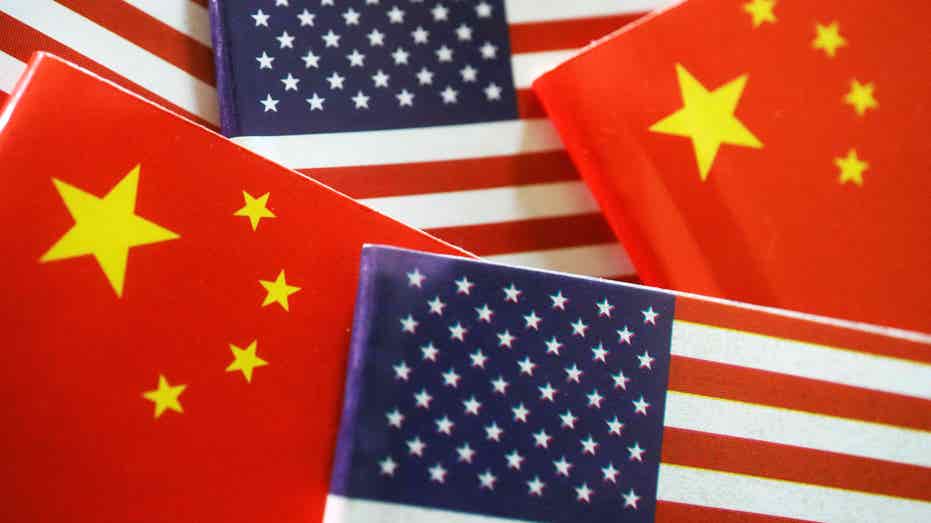Senate’s bipartisan RESTRICT Act would block tech products like TikTok made in adversarial countries
TikTok, owned by a China-based parent company, could be banned under the RESTRICT Act
TikTok bill shows power of China lobby on Capitol Hill: Brent Bozell
MRC President and founder Brent Bozell discusses whether Biden should ban TikTok after a House panel advanced a bill giving him the authority to do so.
A bipartisan group of senators unveiled a new bill that would restrict technology — including software, hardware and social media platforms such as TikTok — developed in adversarial nations like China and Russia from being available to users in the U.S. due to the national security risks.
A group of lawmakers led by Sens. John Thune (R-S.D.) and Mark Warner (D-Va.) unveiled the bill, known as the Restricting the Emergence of Security Threats that Risk Information and Communications Technology (RESTRICT) Act, at a press conference.
"Today, everybody’s talking about TikTok and the ability of that platform to be used by the Chinese Communist Party both to take on data, but also potentially as a malign influence and propaganda tool," Warner said. "But before there that, there was Huawei and ZTE, and before that, there was Russia’s Kaspersky Labs. So what we’re trying to deal with here is the risk of insecure information communication technology."
"It is widely acknowledged that TikTok’s a threat to our national security, which is why Congress took steps last year to ban the platform on government devices, and before TikTok, as Mark pointed out, Congress had to take steps to remove Huawei and ZTE from our telecommunications networks," Thune said. "In my view, we do need an approach that does away with this whack-a-mole with this particular technology with adversarial nations and come up with a more systemic process in which to examine these risks and deal with them."
WHITE HOUSE GIVES FEDERAL AGENCIES 30-DAY DEADLINE TO DELETE TIKTOK FROM ALL GOVERNMENT DEVICES

TikTok, which is owned by a China-based parent company, is among the technology products that could be banned under the Senate's RESTRICT Act. (AP Photo/Kiichiro Sato / AP Newsroom)
Thune noted the connections between TikTok’s China-based parent company, ByteDance, and the Chinese government as being deeply troubling: "I’m particularly concerned about TikTok’s connections to the Chinese Communist Party which repeatedly spies on American citizens. It was reported last year that China-based employees of ByteDance have repeatedly accessed non-public data about users in the U.S. despite TikTok saying to the contrary."
The RESTRICT Act would give the president, through the secretary of commerce, new authorities to mitigate the threats posed by technology products from adversarial nations — the six countries are covered by the bill including China, Cuba, Iran, North Korea, Russia, and Venezuela. The commerce secretary would have the authority to investigate and potentially ban problematic technology products.
The bill would apply to hardware, software, and mobile app products that are covered by current authorities. It would also expand authorities to apply to artificial intelligence (AI) products and services, FinTech, quantum communications, and e-commerce that weren’t previously covered.
TIKTOK BAN: WHO WINS IF PLATFORM IS OUTLAWED TO AMERICAN USERS?

Sens. Mark Warner (D-Va.) and John Thune (R-S.D.) led a bipartisan group of senators in introducing the RESTRICT Act. (Photo by Paul Morigi/Getty Images for PEN America) (Getty Images)

Sen. John Thune, R-S.D., warned about the ties between TikTok's China-based parent company ByteDance and the Chinese Communist Party given the company's access to American users' data. (AP Photo/Jacquelyn Martin / AP Newsroom)
Warner said the RESTRICT Act currently has 12 bipartisan cosponsors who have signed onto the bill at this stage. Other cosponsors who spoke at the press conference include Sens. Joe Manchin (D-W.Va.), Mitt Romney (R-Utah), Tammy Baldwin (D-Wisc.), Michael Bennet (D-Colo.), Dan Sullivan (R-Alaska), and Jerry Moran (R-Kan.). It’s unclear at this time when the bill may be considered by a Senate committee or by the full chamber.
A TikTok spokesperson said, "The Biden administration does not need additional authority from Congress to address national security concerns about TikTok: it can approve the deal negotiated with [the Committee on Foreign Investment in the U.S.] over two years that it has spent the last six months reviewing."
"We appreciate that some members of Congress remain willing to explore options for addressing national security concerns that don’t have the effect of censoring millions of Americans," the TikTok statement continued. "A U.S. ban on TikTok is a ban on the export of American culture and values to the billion-plus people who use our service worldwide."
CHINA MOCKS TIKTOK BAN ON US GOVERNMENT DEVICES, ASKS WHY ‘TOP SUPERPOWER’ FEARS ‘YOUNG PEOPLE APP’

The RESTRICT Act would allow the commerce secretary to review, and potentially block, technology products from adversarial countries like China that pose a national security risks. (REUTERS/Florence Lo/Illustration / Reuters Photos)
The Biden administration expressed support for the RESTRICT Act in a statement released by National Security Adviser Jake Sullivan following the senators’ announcement, urging Congress to "act quickly to send it to the president’s desk."
"This legislation would provide the U.S. government with new mechanisms to mitigate the national security risks posed by high-risk technology businesses operating in the United States," Sullivan wrote. "Critically, it would strengthen our ability to address discrete risks posed by individual transactions, and systemic risks posed by certain classes of transactions involving countries of concern in sensitive technology sectors."
GET FOX BUSINESS ON THE GO BY CLICKING HERE
Last week, Republicans on the House Foreign Affairs Committee passed a bill that would give the Biden administration new power to ban TikTok and other apps deemed to pose a national security risk. The committee advanced the legislation on a 24-16 vote that went along party lines. It’s unclear when the bill may reach the House floor for a vote.




















